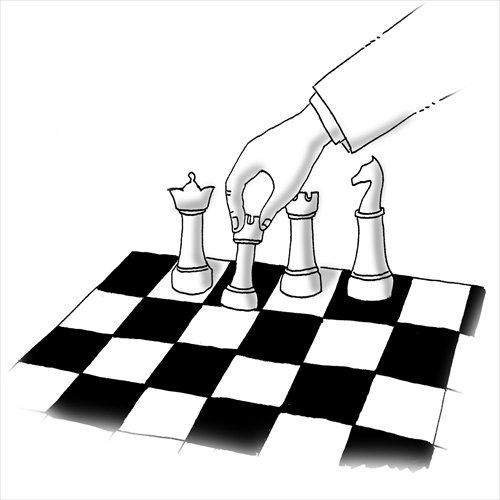Thailand tilts toward China to ease US pressure

Illustration: Liu Rui/GT
In late November, China and Thailand air forces held their first joint military exercises. The drills could enhance the friendship and mutual trust between the two countries and help safeguard regional security and stability. They also send a clear political signal that Thailand is tilting toward China rather than the US
As a traditional US military ally and major non-NATO ally, Thailand has played a critical role in Washington's rebalance to the Asia-Pacific region. It was considered an important instrument to promote democratization in the Indo-China Peninsula and a key pivot to form a strategic encirclement of China in East Asia.
But although Thailand always seeks to strike a balance among powers, it has never fully followed the US geopolitical plans. Instead it attempts to depend on China economically and on the US for security.
The military coup in 2014 posed severe challenges to Thailand's relationship with the US. With the decline of US hard power, soft power, centered on ideological consensus, such as electoral democracy, has become more important for the US to safeguard its global hegemony. Thus Washington responded vehemently to the Thai military coup with suspended military aid, delayed the appointment of the US ambassador to Thailand and heightened pressure over human rights issues.
But Washington's toughness didn't work out well. Thailand desperately needs to mobilize a social consensus on development under strong leadership. If the military gives in to US pressure, Thailand may fall into political tumults again and even see brutal conflicts, so Thai elites don't want to hand power over to the people before order is restored in the country.
Besides, as the only country in Southeast Asia never to be colonized, Thailand is adept at playing the game of major powers. Under Washington's pressure, the Thai junta soon began tilting toward China strategically and clearly sends signals of advancing their strategic cooperation by restarting the delayed railway project and intention to buy submarines from China.
With these steps, Thailand has obtained China's amicability and trust and also got enormous economic benefits. In addition to trade and investment, service, in particular tourism, has benefited. Despite the August bombing at the Erawan Shrine in Bangkok that killed over 20 people including seven Chinese tourists, this year the number of Chinese tourists to Thailand has still grown significantly and the total visits could reach a record high of 7 million.
The tourist boom has created massive foreign exchange earnings and jobs for Thailand and effectively relieves pressure from the US. The reportedly postponed Cobra Gold joint military exercises by the US and Thailand were held as scheduled and the new US ambassador to Thailand assumed office after nearly a year's delay. Washington has showed more friendliness and amiability to Bangkok.
But the US still insists on its political proposition that the junta return power to the Thai people. The lack of democracy in an ally is an embarrassment to the US. The Thai government led by Prime Minister Prayut Chan-o-cha needs public recognition and support from the US both in safeguarding domestic stability and conducting international exchanges and cooperation. In this case, it has become a major strategic choice for the junta to maintain its relationship with China and prompt the US to make political concessions since it cannot give up Thailand.
If Washington disregards the signal sent by the joint exercises of Thailand and China, Bangkok-Beijing strategic cooperation will take a step forward, form closer exchanges and cooperation, and even sway the basic strategy of Thailand where it relies on China economically and on the US militarily.
Under the diplomatic tradition of power balance, Thailand won't lean to China completely and will return to equidistant diplomacy with China and the US. But a new elastic equilibrium of power will be built on the basis of closer ties between China and Thailand.
The longer the US hesitates on balancing to Thailand, the more beneficial it will be for China and Thailand to carry out comprehensive strategic cooperation in multiple sectors and to shape a more harmonious and stable landscape of regional security.
The author is an associate research fellow at the National Institute of International Strategy, Chinese Academy of Social Sciences. opinion@globaltimes.com.cn